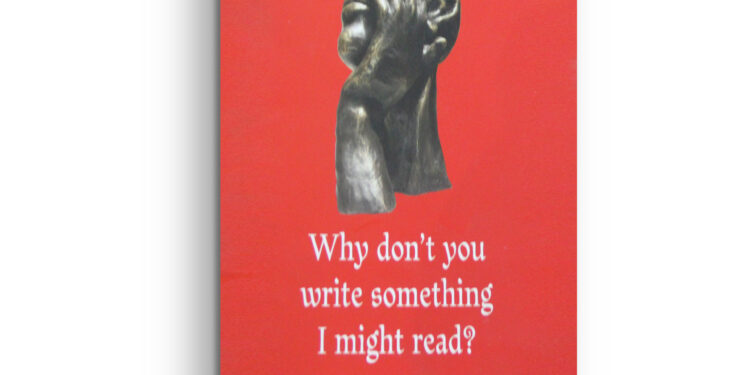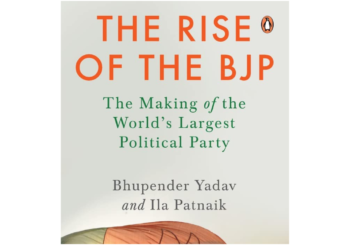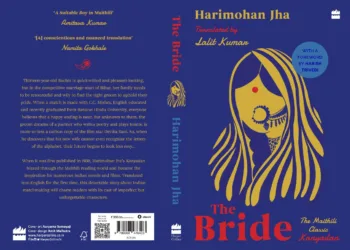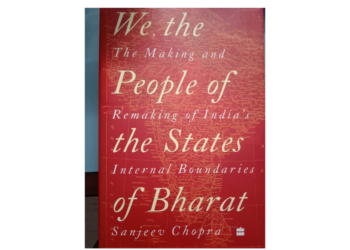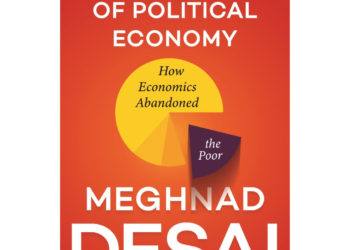BY PARSA VENKATESHWAR RAO JR
This book may appear an indulgence in literary stuff. But it is not. There are deeper issues of life, of values underlying each piece. There is a studied levity in tone, but not in the substance. That is why, wandering with the authors into the alleys and byways keeps you tethered to the
issues that matter most in life
This is a book about books and writers. And the writer has read, met, and interacted with many of the writers. And he writes with joy his experiences. The opening of the book says it all: “Every author I have read is a character in my life story, every book a milestone. V.S.Naipaul said he was the sum of his books; I am the sum of other people’s books.”
What is endearing about this book of short essays, encounters with authors and books, is the sheer joy that the author derived from his literary rendezvouses. He writes about V.S.Naipaul: “The voice on the phone was distinctive. ‘Naipaul here,’ it said, as if it were the most natural thing in the world for a famous author to call up a young sports journalist. ‘Can we meet?’ It remains the most startling I have received.” The title of this essay is “No Plan B”. In “Elegant, lean, immaculate”, about Ved Mehta, he writes: “’Call me Ved,’ he says when we first meet at his New York apartment where he is working on a novel (later, when he is finished with it, he doesn’t like it and decides not to publish).” But these encounters are just a little bit of his literary journeys. There are sharp assessments. Of Naipaul’s journalism and political opinions, he quotes George Orwell summing up Salvador Dali, the provocative surrealist: ‘His politics stinks, but his writing his sublime.’
And as one burrows deep inside the warrens of books and authors, he comes upon fascinating connections. He discovers that P.G. Wodehouse was an admirer of detective stories and murder mysteries, and that he and Alan Conan Doyle become friends, and that famous Sherlock Holmes quip, “Elementary, my dear Watson” perhaps goes back to Wodehouse character Psmith, and that Wodehouse was an admirer of Agatha Christie and she admired him in turn. Useless facts? You would think so if you are not a bookworm, but it is a delightful anecdote to whoever is interested in these joyful arcane matters. And he brings in Poile Sengupta’s Inga, and writes evocatively about the novel: “Inga is a common Scandinavian name, but here it is possibly a Tamil abbreviation of a longer word, thangacchi (younger sister), as articulated by a child. The word that comes to mind when discussing the novel is another Scandinavian one: smorgasbord.” If you love books, you wander off into other bookish matters and come back to the subject.
This book may appear an indulgence in literary stuff. But it is not. There are deeper issues of life, of values underlying each piece. There is a studied levity in tone, but not in the substance. That is why, wandering with the authors into the alleys and by-ways keeps you tethered to the issues that matter most in life. And this seriousness is reflected in the last section of the book, where the seriousness is out in the op but it is laced with irony and humour. These are longish epigrams as it were, and reminds one of Blaise Pascal’s Pensees, in its meditative mode. He writes: “More men and women are being forced to work from home (WFH). ‘Social distancing, but digital closeness’ is the new mantra. ‘Only connect,’ E.M. Forster told us, and we haven’t really had the time to gather our fragments together. Now is the time, since we are disconnected from everything else.”
That is what books do to you. Make you look at life.
@sureshmenon #whydontyouwritesomethingimightread @parsavenkateshwar


